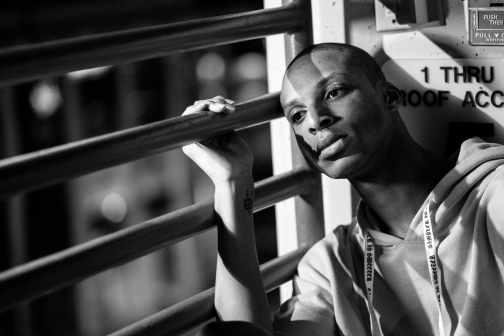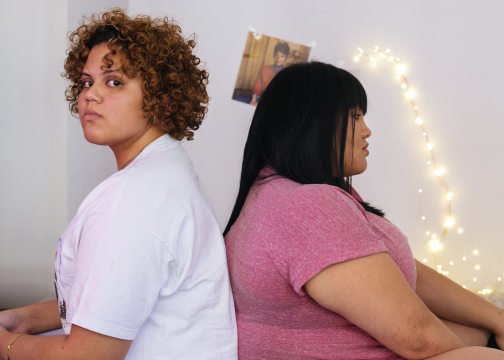The Impact of Insulin Rationing on Mental Health
“Will I be able to pay all of my bills this month?” 
It’s a question people with diabetes who ration insulin have to ask themselves when it’s time to choose between refilling a prescription and paying bills.
Insulin rationing is, unfortunately, a reality for people living with diabetes—both type 1 and type 2. A 2017 study showed one in four people with diabetes has rationed their insulin due to financial hardship. Rationing insulin includes underusing the prescribed amount of insulin needed to maintain blood glucose control, not filling a prescription, limiting carbohydrate intake, or stopping it altogether. Unsurprisingly, it is likely to lead to poorer glycemic management and can lead to death from diabetic ketoacidosis (DKA), particularly in people with type 1 diabetes. Not only does insulin rationing have a major impact on physical health, but it also takes a toll on one’s mental and emotional health.
It certainly makes sense, right? The costs of insulin have skyrocketed over the years, tripling over the past decade. In general, financial distress is strongly associated with depressive symptoms.
People living with diabetes are already reminded of their disease every day. The stress of worrying whether or not you can literally afford to live is just one more addition to the already enormous mental health burden of living with a chronic disease.
“People with diabetes most often ration insulin because of cost, which is influenced by having no insurance, being underinsured and family priorities,” said clinical psychologist Alicia McAuliffe-Fogarty, Ph.D., who also lives with type 1 diabetes. “Nowadays, we have increased costs of medications, co-pays and insurance, as well as the cost of living. So often people have to make these hard decisions: do I feed my kids? Can we survive without water and electricity this month so I can get insulin? These are decisions no one should have to make as insulin is a life-sustaining medication and without it, people will die.”
People with Diabetes Have Increased Risks for Anxiety and Depression
People with diabetes are two to three times more likely to suffer from depression and have elevated rates of anxiety, as I know all too well. For me, insulin rationing exacerbated my anxiety surrounding my diabetes.
The year I was diagnosed with type 2 diabetes, I was set to age out of my mother’s insurance several months later. One of my major concerns was being able to afford my Lantus prescription. It had only been $25 under my mom’s insurance plan, but the list price without insurance was $400-$500. I knew I had to find a way to get covered, so I took out a loan to get insurance through my school. Unfortunately, insulin was still hundreds of dollars with my new coverage, so there were weeks I went without taking my insulin consistently until I was able to get Basaglar. The thought of suffering from complications, specifically a stroke or a heart attack, weighed heavily on my mind for months. It made living with diabetes more difficult, even scary.
Unhealthy and Healthy Coping Mechanisms to Insulin Rationing
 There are healthy ways to cope with diabetes distress, such as getting support from professionals and loved ones and prioritizing self-care. But not all coping mechanisms are healthy. McAuliffe-Fogarty has seen patients resort to substance abuse, suffer from eating disorders such as anorexia, using expired insulin, dropping out of school and forgoing opportunities to afford insulin.
There are healthy ways to cope with diabetes distress, such as getting support from professionals and loved ones and prioritizing self-care. But not all coping mechanisms are healthy. McAuliffe-Fogarty has seen patients resort to substance abuse, suffer from eating disorders such as anorexia, using expired insulin, dropping out of school and forgoing opportunities to afford insulin.
“No one wants diabetes. It interferes with your life in every way,” said McAuliffe-Fogarty. “People with diabetes experience more mental health issues than people without diabetes, especially depression, which makes it more difficult for them to manage their disease. Often people try to escape or self-treat how they are feeling (e.g., sad, anxious, etc), and develop unhealthy coping methods. People with diabetes need to be treated as a whole person, both their physical and mental/emotional well-being. This includes their diabetes management, how they are feeling and functioning in other aspects of their life—their family life, ability to access basic necessities of food, clothing, shelter, medication, etc. to prevent and/or treat these issues.”
She also notes how people who struggle to obtain insulin won’t waste it even if it’s expired because it’s such a valued commodity. Any individual would take expired insulin to stay alive, especially if they’re already making other sacrifices in other parts of their lives and those of their families.
“These sacrifices include parents not taking the jobs they want, not being able to send their kids to dance lessons, not being able to take vacations and making career decisions to get health insurance—all because they need to pay for diabetes supplies including insulin,” said McAuliffe-Fogarty, who will soon publish a study on this subject.
And for people who are hesitant to ask for help? Some may be too proud to do it, according to McAuliffe-Fogarty, and forgo basic necessities such as insulin. She’s also seen patients ration insulin, eat fewer carbs and exercise more to avoid asking for help.
“The stress of the cost of insulin stresses people out and to add insult to injury, further increases their blood sugar,” said McAuliffe-Fogarty. “Also, in many cultures, it is embarrassing and taboo to ask for financial help, so people don’t. They often feel guilty of being a burden on their family and try to make do with what they have. Accessing life-sustaining drugs is a huge issue in this country and should not be this difficult for people to stay alive.”
How Health Providers Can Help Relieve Distress from Insulin Rationing
At the end of the day, insulin should be easily accessible, period. Being able to take insulin as prescribed, is self-care, and reduces the stress of having to make life-or-death decisions. McAuliffe-Fogarty gives some practical tips she offers her patients to deal with diabetes distress from insulin rationing, tips from which other healthcare professionals, including primary care physicians, could use.
“If patients cannot afford insulin or access it, we make that a priority, whether it’s problem-solving on how to pay, calling the patient assistance programs right there or calling to ask for help from some non-profit organizations,” said McAuliffe-Fogarty. “The process that pharmaceutical companies have to provide financial assistance is getting a little easier but it still requires some work and documentation proof on the part of the patient. Often people don’t know what they are asking for or fill out the forms wrong, so making this a priority and doing it correctly with the patient so they get their insulin is important. Also discussing options such as the lower cost Walmart-brand insulins to tie them over is of discussion. We, including myself in the 1980s, used these types of insulin for years, and are still healthy. Although not ideal to use them with the newer insulin on the market, according to the data our A1cs weren’t much different sadly. So using these insulins is a very viable option for people.”
She also suggested doctors need to do more than simply asking patients if they need more refills for medications and getting frustrated with patients who don’t follow their recommendations. Doctors should also be inquiring if a patient is experiencing issues paying for those medications. For example, McAuliffe-Fogarty recalls seeing type 2 patients who need insulin but remain on metformin because that’s all they can afford.
A Mental Burden People with Diabetes Shouldn’t Have to Bear
There’s no need to lecture or shame a person with diabetes on how insulin rationing is “wrong,” either. People with diabetes would always rather have an abundance of insulin than worry about where, when and how the next batch of insulin vials or pens are coming. Those with diabetes don’t underutilize our prescribed insulin because we like seeing high blood glucose numbers and the other physical effects of hyperglycemia. There is no joy in making the tough decision to forgo insulin until the next pay cycle in order to pay rent or buy groceries (that some don’t even have enough insulin to bolus for!)
These decisions can have deadly consequences. Notable stories include Alec Smith, who died in 2017 at the age of 26, after he was no longer covered by his mother’s insurance; Jada Louis, who had to choose between paying her rent or $300 for insulin and passed at the age of 24 after being hospitalized for DKA; and Meaghan Carter, a 47-year-old nurse with no health insurance, who died alone on her sofa on Christmas Day in 2018.
We live in the age of “self-care,” where we’re inundated with memes and colorful Instagram graphics on how to manage stress and protect our mental health. For people with diabetes, included in that self-care routine is knowing we have enough insulin to live to see and enjoy another day without undue financial burden. It also means reaching out for help and seeking help from a mental health professional and having access to resources to help us get insulin when we need it. It also means not falling into the traps of unhealthy coping mechanisms such: as starvation, substance abuse and forgoing other positive quality of life goals.
Rationing insulin because there’s no other option is a life-or-death issue. Life with diabetes, in general, already has its ups and downs. But, shouldering those ups and downs with the uncertainty of being able to consistently get vital medication to survive is a mental and emotional burden no person with diabetes should have to bear.






